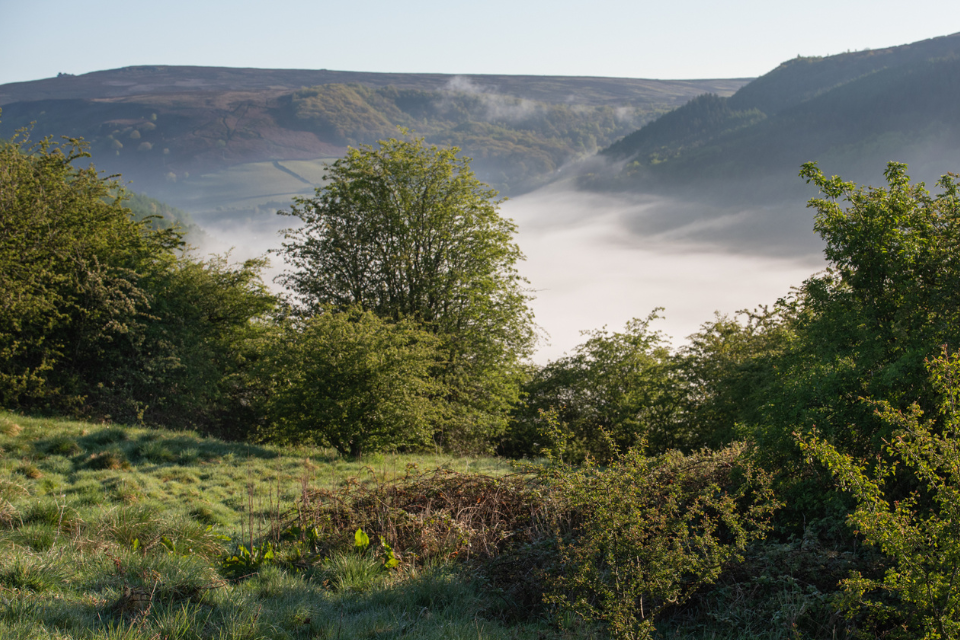
The Broughton Estate harks back to an era when wolves freely roamed England. Today, they’re dedicated to rejuvenating this historic terrain and offering a haven for guests seeking rejuvenation.
At the age of seven, when Roger Tempest inherited the Broughton Estate, it was a place where tadpoles could be found flowing from the taps. The main house was so exposed to the elements that during winter, the billiard table would collect a gentle dusting of snow. Dining at the estate required wearing hats and gloves. The land had been granted to his ancestors in 1097, following the Norman invasion, a time when wolves still roamed freely in England. For nearly a thousand years, these 3,000 acres on the fringes of the Yorkshire Dales have reflected the evolving history of the country: the enclosures, predator persecution, deforestation, modern farming practices, and the gradual disappearance of the wild. Today, Broughton Estate is participating in a fresh discourse on land use that has the potential to reshape the image of England’s landscape.
Roger, as the 32nd generation steward of the estate, carried the weight of a profound historical legacy. During his time, many English estates, given their exorbitant costs and challenges in management, were facing dissolution. However, when Roger reached adulthood in the late 1980s, he was resolute in preserving the property. The advent of the fax machine allowed for the establishment of offices in previously unimaginable locations. He repurposed the dilapidated barns into a business park, breathing new life into the estate. Today, it accommodates 52 companies employing over 700 individuals. With the estate’s financial stability established, various other transformations became feasible. In fact, Alastair Driver, the director of Rewilding Britain, recently hailed it as “the most rapidly transformative” rewilding initiative in the nation.
Already, the presence of saplings and resurgent undergrowth imparts a wild and untamed character to the land. Along with them, there has been a resurgence of butterflies, micro moths, hoverflies, and grasshoppers. Voles have become so abundant that a photographer recently witnessed eight barn owls hunting in a single field. This offers a glimpse of how England’s landscape may have appeared in the past.
In four more years, they plan to reintroduce grazers like Tamworth pigs, Exmoor ponies, and shorthorn cattle. The objective is to recreate an ancient landscape composed of meadows, woodlands, scrub, and managed trees that are favored by songbirds.
Visitors to Broughton have the option to stay in one of the 19 cottages on the estate or in the main hall itself. While it serves as a base for a holiday, Hollick hopes that guests will also use their time to connect with the ongoing transformation. Activities such as forest bathing, wild swimming, tree planting, and species monitoring offer numerous ways to fully immerse oneself in Broughton’s metamorphosis. Observing a hare or a hen harrier in a place where they were absent just a year ago provides a unique and therapeutic experience.
For Roger, there is an additional aspect to this metamorphosis. Just as modern agriculture has subdued the natural landscape, modern lifestyles have subdued our inner selves. In 2018, the Avalon Wellbeing Centre was established. Ruby Wax, who leads one of the 50 annual retreats held here, described it as “the most impressive place I’ve ever visited.” The architecture of the center is marked by the absence of sharp corners; stairwells, meditation spaces, and shower cubicles all follow a circular, mandala-inspired design, wrapping around the building.
The next morning, I participate in a yin yoga session in an upstairs space known as the “Nest,” led by Paris, Roger’s partner. The yoga practice involves holding poses for extended periods while the morning sun emerges, and small birds flutter amid the trees that border the room, visible through the glass. I generally approach these practices with skepticism, but as I play around in the pool afterward, I unexpectedly find myself feeling quite rejuvenated.
Alastair Driver, representing Rewilding Britain, emphasizes the importance of moving beyond single-use land practices during our phone conversation shortly after my return from Broughton. He emphasizes the need for multifaceted land management that includes flood risk reduction, improved water quality, carbon sequestration, biodiversity preservation, enhanced access, health and well-being opportunities, all while ensuring sufficient food production.
According to Driver, the current government seems determined to overlook these evident principles. Therefore, witnessing individuals and organizations taking the lead, regardless of the policy, is the hope we currently require. My visit to Broughton has left me with a renewed sense of what is achievable, which is a remarkable outcome for a short getaway.
I would like to mention that my stay was provided by Broughton Sanctuary. The rates for Ivy Cottage, which accommodates two guests, start from £173 per night, based on a minimum three-night stay, or from £725 for a week.



